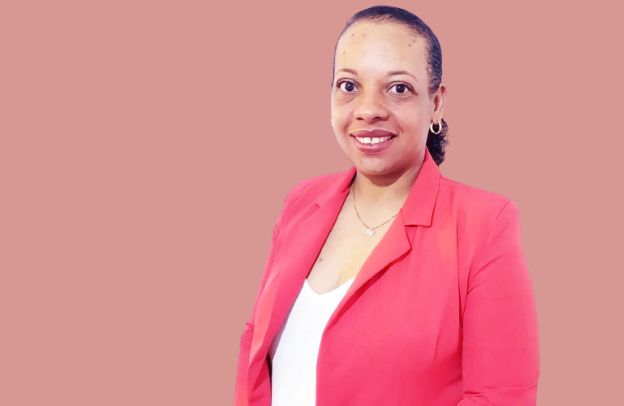The Decolonization of Mindset among Africans – Dr. Kiatezua Lubanzadio Luyaluka

In a thought-provoking episode of the Obehi Podcast, Dr. Kiatezua Lubanzadio Luyaluka, Director of NZIL’ALOWA in Kinshasa, delved deep into the urgent need for Africans to reclaim their cultural heritage and spiritual identity. This is a conversation that has become very important for a lot of Africans today based on what is happening around them, particularly those in the diaspora.
Want to learn more about storytelling? Start by downloading the first chapter of The Storytelling Mastery.
The Decolonization of Africans’ Mindset
With a fervent voice, Dr. Luyaluka articulated the importance of decolonizing the African mindsets, shedding light on the pernicious effects of Western intrusion into the African educational, religious, and societal frameworks. A situation that has led to identity crises for many Africans both at home and abroad.
Meanwhile the same seems to be playing to the advantage of European colonialists and the neocolonialists across Africa today. See the full interview below:
“Knowledge is a revelation from the enlightened ancestors as against our brain,” Dr. Luyaluka stated, invoking the profound wisdom passed down through generations. For him, knowledge isn’t merely a product of cognitive faculties but a sacred inheritance from the ancestors, rich with the essence of African spirituality.
Drawing from the wellspring of Yoruba wisdom, Dr. Luyaluka echoed the belief that the physical realm is but a veil concealing the profound spiritual reality beneath. He underscored the importance of reconnecting with this spiritual essence, which lies at the heart of African existence.
Central to Dr. Luyaluka’s discourse was the insidious onset of colonization, which he traced back to the invasion of Africa’s educational system. “Colonization started with the miseducation of the Africans by disconnecting them from their ancestors,” he asserted, highlighting the deliberate severance of Africans from their cultural roots and indigenous knowledge systems.
If you observe closely, many Africans who have received Western education often lack a profound understanding of themselves.
This raises the question: How can this be? Well, Western education, shaped by Western interests and paradigms, often fails to cater to African perspectives and interests. Education, though seemingly innocuous, serves as a framework through which individuals perceive the world.
See also Decolonizing the African Curriculum: Empowering Voices, Challenging Biases
In an article titled, “Striking Differences between Western and African Education,” published in African Leadership Magazine, a notable distinction between the different curricula was explained as follows: Western education prioritizes subjects like mathematics, science, and technology, while African education emphasizes the humanities, social sciences, and history. Meanwhile, it can actually be more serious than that.
Religion, too, became a battleground for colonial domination. “The Europeans succeeded in Africa through the imposition of Western religion as being superior and the negation of African spirituality,” Dr. Luyaluka lamented. And that by devaluing African spiritual practices and elevating Western dogma, colonialists eroded the foundations of African belief systems.
Rejecting the notion of European ‘discovery’ of African lands, Dr. Luyaluka rebuked the colonial narrative as absurd. “Saying the Europeans discovered places in Africa such as rivers or lakes is a stupid idea,” he declared, challenging the Eurocentric narratives that have long dominated historical discourse.
In contrasting the temporal nature of European civilization with the timeless essence of Africa, Dr. Luyaluka invoked a profound dichotomy. “We live in a temporal universe, and we need to wake, sleep and wake again.
Africa is a Sola civilization and Europe is a Luna civilization,” he said, encapsulating the fundamental difference in worldview between the two cultures.
Check out also Arikana Chihombori-Quao: Champion of African Unity, Diaspora Engagement, and Economic Empowerment
Presentation by Dr Kiatezua Lubanzadio Luyaluka
When we think about the colonization of Africa, the first image that comes to mind is that of hordes of White people invading the land since the 15th century and imposing their value system.
However, if we want to better understand the process of the colonization of the Black, as this is important for the process of decolonization, we must go as far as the 6th century B.C.E. and learn how the Grecian students reacted to the epistemic principle that was taught to them by the Black priests of ancient Kemet.
The great basic epistemic principle of the Blacks was then that the “soul is free from the body”. We still encounter this principle when an African elder is confronted with a hard question answers: “Let me sleep and let the head have a dream”.
What is affirmed in both cases is that the soul being free from the body, can launch in epistemic peregrination on higher planes of existence and bring back new knowledge to us. This means that knowledge is essentially revelatory, knowledge comes from the ancestors, rather than the brain.
We must realize that the very concept of the soul, the immortal consciousness of being, is at the center of this Black conception of the human being. The physical body accompanies the soul as it is itself accompanied by its optical shadow. In other words, the soul is to the body as the body is to its optical shadow.
The Yorubas of Nigeria, like the Kôngos of central Africa, affirm that the physical nature is only an appearance; the reality of being is spiritual. Thus in Africa, ontology (the theory of being) and epistemology (the theory of knowledge) agree on the fact that the highest nature of human beings, the spiritual, is not dependent on the lower, the material.
This explains also the fact that religion in Africa, which by the way was originally and is still in Bukôngo, the Kongo religion, an exact science, underpinned any knowledge.
This conception of being and knowledge was not in conformity with the Grecian worldview. Thus, after studying it in ancient Kemet, the Grecian elite began to separate itself from it thanks to the use of speculative philosophy and the authority of its scholars.
The first move came from Plato who affirmed without proof that the soul indeed is free from the body, but before the birth. At birth, the soul is attached to the body like a carrier to a cart. This position was adopted not for any kind of provability, but due to the simple fact that Plato was one of the most learned Grecians in his lifetime.
The next move will be taken after Plato when the succeeding philosophers affirmed that the soul is only a process in matter. This implies that the soul, once free, was now completely imprisoned in the physical body; the spiritual became contingent on the material, a reversal of the African ontological order where reality is perceived as being spiritual and independent from the body.
Later on, after the Western Renaissance, came Francis Bacon. He suggested that the way to make science is to observe nature, draw some empirical facts, and generalize them into laws.
This is called the empirical method. Thanks to this method the West discovered much knowledge. But conversely, the soul was completely defenestrated from the field of the acquisition of knowledge.
As the materialistic West reached Africa in the 15th century, they were already armed with this encaged conception of the soul as a simple process in a matter not to be accounted for but heuristically in the process of the acquisition of knowledge.
This implies that religion can inspire the scientist, but it can never anymore lead him and determine the process of the acquisition of knowledge as it ideally used to do in traditional Africa. This conception will be imposed on the Black as the only valid starting point in the process of knowing.
Colonization thus started with the inversion of our educational values. Understanding that it is filthiness that seems to attach the soul to the body, the African main and highest educational process consisted of purifying the soul to allow its freedom and peregrinations to higher planes of existence for the acquisition of knowledge.
With the materialistic negative influence of the West, the educational process will be now confined to two theories: a well-filled head or a well-shaped head. This acquired knowledge is a problem of the brain and not of the soul.
See also The Importance Of African Names And The Diaspora Identity – The Diaspora Storytelling Series
Thus, colonization started with the miseducation of the Black, a miseducation that cut him from relying on his ancestors in the process of knowing. The educational process was now exclusively concerned with the brain rather than with the soul.
The new political leaders of Africa must understand this process of the miseducation of the blacks to reconnect our population with the educational principles that are still in our traditional culture and that rely on the freedom of the soul from the body.
For, whereas the education system of the West helps create brainy elements in society, our traditional system enables the initiate to transcend epistemological obstacles and, thanks to intuition, attain solutions never envisaged.
In other words, this decolonization of the educational system of Africa will elevate the genius of the Black and allow them to surpass the achievement of the present Western materialistic civilization as predicted by the Kôngo prophet Simon Kimbangu: “The Black will have the intelligence to invent all kinds of objects more than White has done”.
The pedagogical colonization of Africa was reinforced by two elements:
- The imposition of Western religion-belief as the highest spiritual norm.
- The negation of our history.
To succeed in colonizing our religious mind, the West demonized all the values linked to our devotional practices. In the span of a night, our traditional healers, scientific experts, diviners, etc., became witches. The once religious and prosperous atmosphere of the Black continent became suddenly infested with demons discovered or created by the Whites.
However, our young people must know that the problem is not religion per se, but the misuse of it as a mere belief. Thus, the solution is not the rejection of religion as is ignorantly advocated by many traditional Kemites, but the return to the original nature of religion where it is an exact science.
The aim of any science is the development of the spirit, the power to grasp the realities relating to that area of knowledge. Thus, the mathematician develops the mathematical spirit. The accountant develops the accounting spirit.
The lawyer mastered the legal spirit, etc. Religion as knowledge allows you to develop the related spirit, i.e. spirituality, the power to understand spiritual realities.
If the West has misused religion, which religion was a mere belief, the solution for us is not the outright rejection of religion. Rather, it is to bring African traditional religion back to its true Kemetian and Kôngo configuration as an EXACT SCIENCE.
As there is no power without knowledge, there is no spirituality, or spiritual power, without religion or religious knowledge. Let the traditional Kemites stop deluding themselves. We need religion, but religion is elevated to the highest epistemic stature as an exact science.
This elevation alone will set us back in the epistemological paradigm of ancient Kemet where religion underpinned all scientific lore, and knowledge was based on the freedom of the soul from the body.
A nation disconnected from its history is like a plant without roots. It cannot grow properly, and its poorly nourished leaves fall. The biggest crime of colonization was to make tabula rasa all the values that were found in Africa and claim that before the arrival of the whites in the 15th century, Africa was a land without history.
Thus we make statements such as: “Mungo Park discovered the Niger River like Diego Cao discovered the mouth of the Kôngo River”. These are stupid affirmations destined to show that Black people didn’t have a history.
Facts show today that it is the Black African, the Moores, who brought enlightenment to Europe via Spain, Portugal, the south of France, and Italy like the ancient Black priests of Kemet enlightened the Grecian with their higher knowledge. Deliberately African history has been destroyed to claim the so-called civilizing virtue of the West.
The city like ancient Benin equipped with public light, built roads, and protected by the world’s longest fortified wall, was more majestic and greater than the then city of Lisbon, in Portugal. The West could not stand such an insult to their pride, thus the only solution for them was to completely destroy this African majestic city.
See also Which Great Ancient African History Mostly Inspires You As An African?
The destruction of our history also led to the undermining of our identity. History is beginning to recognize that the Black of Africa is the original Homo sapiens. He never evolved toward humanity.
Meanwhile, starting from the caves of Caucasians in Russia, the European Neanderthal and the Asian Denisovan (from the Denisova Cave in the Altai Mountains in Siberia) had both evolved from ape-like stature to humanity by mixing their blood with the African Homo-sapiens.
It is time for Africans to awaken and work for the decolonization of their mindset. This process entails:
- reaffirming the value and necessity of our traditional educational system based on the freedom of the soul from the body.
- Re-establishing in all its trends the original nature of our traditional religion as an exact science.
- Reclaiming our true history as the civilizing homo sapiens and reaffirming our glorious past as seen in ancient Kemet and in our various pre-colonial kingdoms.
Understanding The Decolonization of Africans’ Mindset
At its core, the decolonization of the African mindset involves a radical reevaluation of historical narratives, cultural paradigms, and knowledge systems that have been shaped by colonial powers.
This process encompasses various aspects of life, including education, religion, and societal structures, which have been deeply influenced by Western impositions.
By challenging Eurocentric perspectives and reappropriating indigenous epistemologies, Africans can liberate themselves from the mental chains of colonization and reconnect with their ancestral wisdom and spiritual heritage.
It entails a conscious effort to dismantle systems of power that perpetuate colonial legacies and to forge a new collective consciousness rooted in self-determination, cultural pride, and holistic well-being.
See also Carter G Woodson, American Historian, Author, and Journalist – 1875 To 1950
Decolonization also entails a profound reclamation of African spirituality, which has long been marginalized and devalued by colonial forces. It involves acknowledging the interconnectedness of the physical and spiritual realms and embracing indigenous cosmologies that honor the wisdom of ancestors and the sanctity of the natural world.
By centering African spirituality as a guiding force for individual and collective liberation, Africans can resist the erasure of their cultural identities and assert their right to self-determination.
In other words, the Decolonization of African Mindsets is a transformative process that transcends geographical borders and encompasses the collective aspirations of Africans worldwide to chart a future free from the shackles of colonialism, where cultural autonomy, spiritual sovereignty, and social justice reign supreme.
Want to learn more about storytelling? Start by downloading the first chapter of The Storytelling Mastery.






